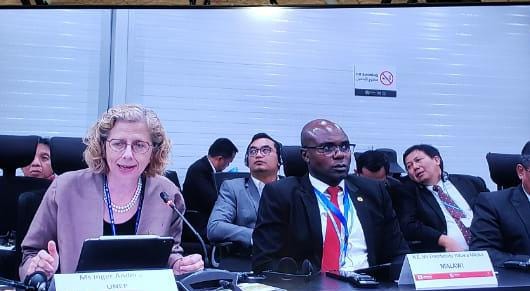"LDCs must recognize building capacity for climate change adaptation requires expertise"
“Universities are the most sustainable institutions, they have the expertise, they outlive the governments, governments change, they come and go but universities stay on,” Khan.
Sharma El Sheik, Egypt: Least Developed Countries (LDCs) must recognize that building capacity for climate change adaptation requires expert knowledge and sustainability and that universities, not governments, are better positioned to take the lead.
Prof Mizan Khan, Director of the LDC Universities Consortium on Climate Change and Development (LUCCC), stated at one of the UNFCCC capacity-building events held on Wednesday at COP27 that most government officials lack practical knowledge to understand the science of climate change.
He claims that a lack of expertise jeopardises decision-making and implementation.
Khan said: “Most government officials in key positions lack practical knowledge to understand climate change and yet the majority of LCDs have left the capacity building of communities in the hands of governments which has proved to be less effective and is not sustainable.
“Universities are the most sustainable institutions, they have the expertise, they outlive the governments, governments change, they come and go but universities stay on.”
Khan claims that most LCDs are falling behind in climate change adaptation because capacity-building initiatives are disrupted when governments change.
He stated that developing partners must begin empowering universities with resources that will allow them to improve climate change in their institutions.
“We need to do action research which will keep the policy process at the local national level, this is why universities are the most important hub of capacity building,” he said.
The Africa Network of Agricultural Policy Research Institutes (ANAPRI), formerly ReNAPRI, responded to LUCCC's position by stating that it recognises the importance of higher learning institutions and that, as an institution, it is collaborating with academic institutions to co-create courses and programmes that address the realities posed by climate change.
“ANAPRI has strategic alliances with different Universities and research institutions and the majority of the think tanks are directly affiliated with universities,” said Antony Chapoto Technical Chair-Africa Network of Agricultural Policy Research Institutes (ANAPRI) formerly ReNAPRI.”
Eisenhower Mkaka, Minister of Environment and Natural Resources, agreed that the fight against climate change must be science-based and that a scientific body would be ideal to lead the fight.
“I agree that sometimes because of lack of policy there is disruption when there is a change in government but with proper policy, it should be easy to have continuity in place,” he said.
Inger Ander, Under-Secretary-General of the United Nations and Executive Director of the UN Environment Programme, emphasised the importance of prioritising climate education, particularly among youth, because knowledge is required to combat climate change.
“Climate change is a nonextensile issue, it is an issue for the future, and if we don’t help the young people of today have all the knowledge and the tools they need to fight this. we are not doing them and ourselves a service,” she said.




